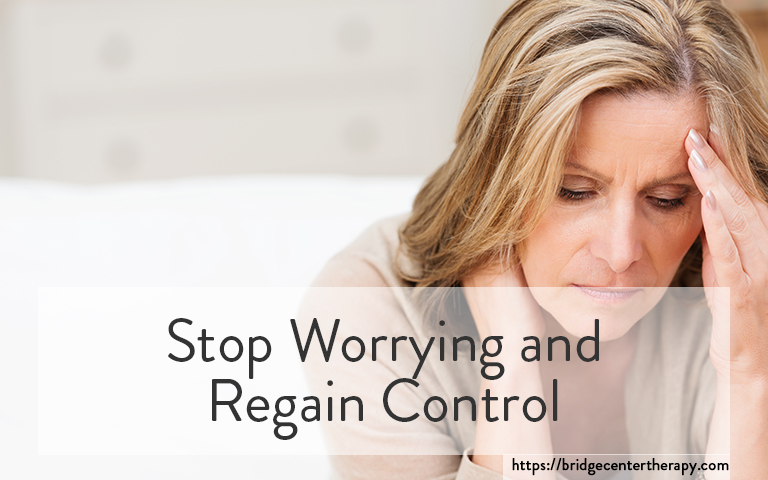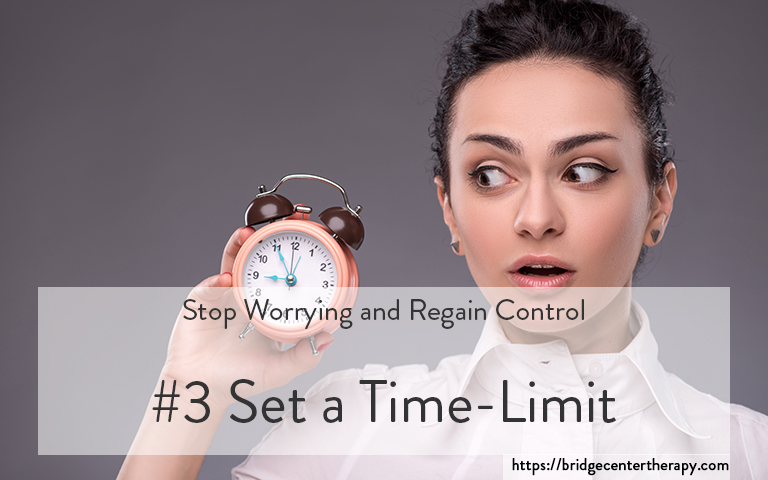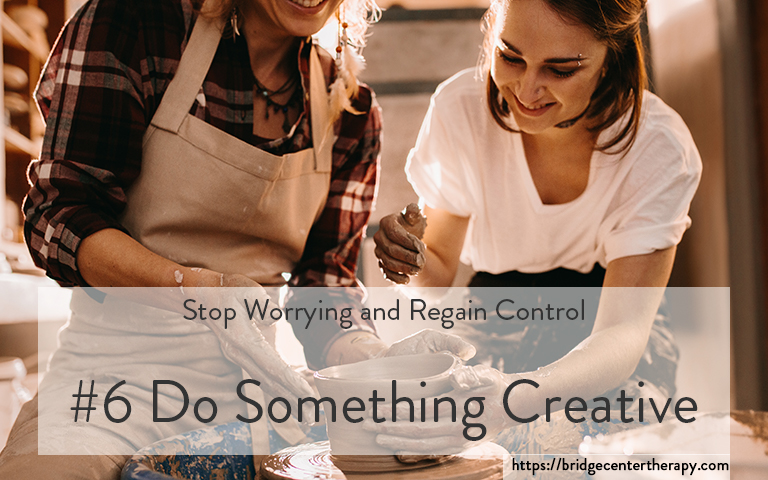
Your brain will try to convince you that worrying and ruminating is helpful. Actually, you’re just making things worse. Negative thinking will kill your joy. You need practical tools to help you reduce worry. Here are some tips to help you break free.
1- Ask Yourself If It’s Helping
Is your worrying helping you to look at the situation in a new way? Are you finding solutions? Do you feel better? If not, then worrying is unhelpful and you need to find something more productive to focus on.
You can get there from here.
Your thoughts inform your feelings. While it is impossible to simply tell yourself to not feel the way you do, you can change the way you think and talk to yourself. This will improve your feelings and the way you behave in the situation.
3- Set a Time-Limit
If you are constantly distracted you can set a time dedicated to your concerns. Allow yourself time to think about what is troubling you and feel the emotions. When the time is up, go back to your normal day.

4- Make a List
Consider writing down all of your worries. This gives them a “holding place” so you don’t have to carry them all in your head. Seeing a list on paper will also bring more clarity and help you with problem-solving.
You need balance. Relaxing may not come naturally to you, so you may need to practice this step. The activity you choose does not matter. What is important is that you are taking some time for yourself.

Most people are at their most creative during their low times. This will help you direct the excess mental energy you have elsewhere. You may even pick up a new hobby along the way.
7- Be Proactive
The best way to deal with worry is to tackle the situation or project head on. Worrying is a form of planning. If you don’t turn it into action, you lose a lot of time and energy.
8- Determine What You Can Control
Sometimes all you can control is your own emotions and reaction. When you focus on the things you can control, you will be much more effective.
We are social creatures. You don’t need a vast network. Don’t underestimate the value of the few loved ones you can truly talk to and count on to be there for you.
Need Help? We Can Help.
10- See a Therapist
If your worry is having a negative effect on your mental and physical health, consider scheduling an appointment with a qualified anxiety counselor. You will learn the coping skills you need to gain more control.
It’s important to focus on taking the steps to improve your life and recognizing that some things are out of your control. You will have more time and energy to devote to the things you can control.
Do you need an Oakland Anxiety Therapist? Call (510) 497-4174 today.
This post was written by Lani Gouws on behalf of The Bridge Therapy Center. If you have any questions or require more information, please contact Lani here: lani@bridgecentertherapy.com
